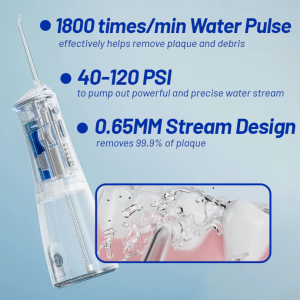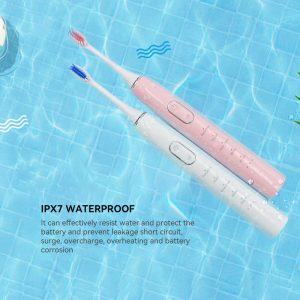The electric toothbrush has revolutionized oral care with its efficiency and advanced technology. But what makes it work so effectively? This article will analyze the components of the electric toothbrush, unveiling the electric toothbrush technical secrets that enable superior cleaning performance. From the electric toothbrush motor to the electric toothbrush brush head, each element plays a crucial role in delivering a high-quality brushing experience.https://www.powsmart.com/product/electric-toothbrush/
The Heart of the Electric Toothbrush: The Motor
The electric toothbrush motor is the key component that powers the device. Two primary types of motors are used:
Rotary Motors: These create a spinning motion, commonly found in oscillating toothbrushes.
Sonic Motors: These generate high-frequency vibrations to enhance plaque removal.
Each motor type affects the toothbrush’s performance, efficiency, and user experience. Manufacturers continuously improve motor technology to optimize power consumption, speed, and durability.
Power Supply and Battery Efficiency
A reliable power source ensures long-lasting and efficient operation. Most electric toothbrushes use either:
Rechargeable Lithium-ion Batteries: Offer long battery life, quick charging, and consistent power output.
Alkaline Batteries: More common in budget-friendly models but require frequent replacements.
Advanced models integrate smart charging solutions, such as wireless charging and fast-charge technology, to enhance user convenience.
Control System and Smart Features
Modern electric toothbrushes come equipped with intelligent control systems, offering features like:
Multiple Brushing Modes (sensitive, deep clean, gum care, etc.)
Pressure Sensors to prevent excessive force on gums
Timers and Smart Assistants to ensure optimal brushing time
These innovations improve user experience and ensure better oral hygiene by guiding brushing habits.
The Role of the Brush Head
The electric toothbrush brush head is where direct contact with teeth and gums happens. Key aspects include:
Bristle Design: Soft vs. firm bristles, multi-level vs. uniform bristle structures
Head Shape: Round (for oscillating brushes) vs. elongated (for sonic brushes)
Replacement Indicators: Signals users when it’s time to change the brush head
A well-designed brush head ensures effective plaque removal while being gentle on gums.
Material and Durability Considerations
Manufacturers must carefully select high-quality materials to ensure longevity and safety. Common choices include:
Food-grade plastics for the handle and brush head
TPE (thermoplastic elastomer) materials for improved grip and water resistance
Stainless steel drive shafts for enhanced durability and performance
These components contribute to a durable and user-friendly electric toothbrush.
Future Trends in Electric Toothbrush Technology
As the market evolves, manufacturers are integrating advanced technologies such as:
AI-powered brushing analysis to personalize oral care routines
UV sterilization for hygienic brush head maintenance
Sustainable, biodegradable materials to reduce environmental impact
By continuously refining these technologies, the electric toothbrush industry is setting new standards for oral hygiene.
Conclusion
The components of the electric toothbrush work together to provide an efficient and effective cleaning experience. From the electric toothbrush motor that powers the device to the electric toothbrush brush head that ensures thorough cleaning, each component plays a vital role. As technology advances, manufacturers will continue to innovate, delivering smarter, more powerful, and sustainable solutions for consumers worldwide.


